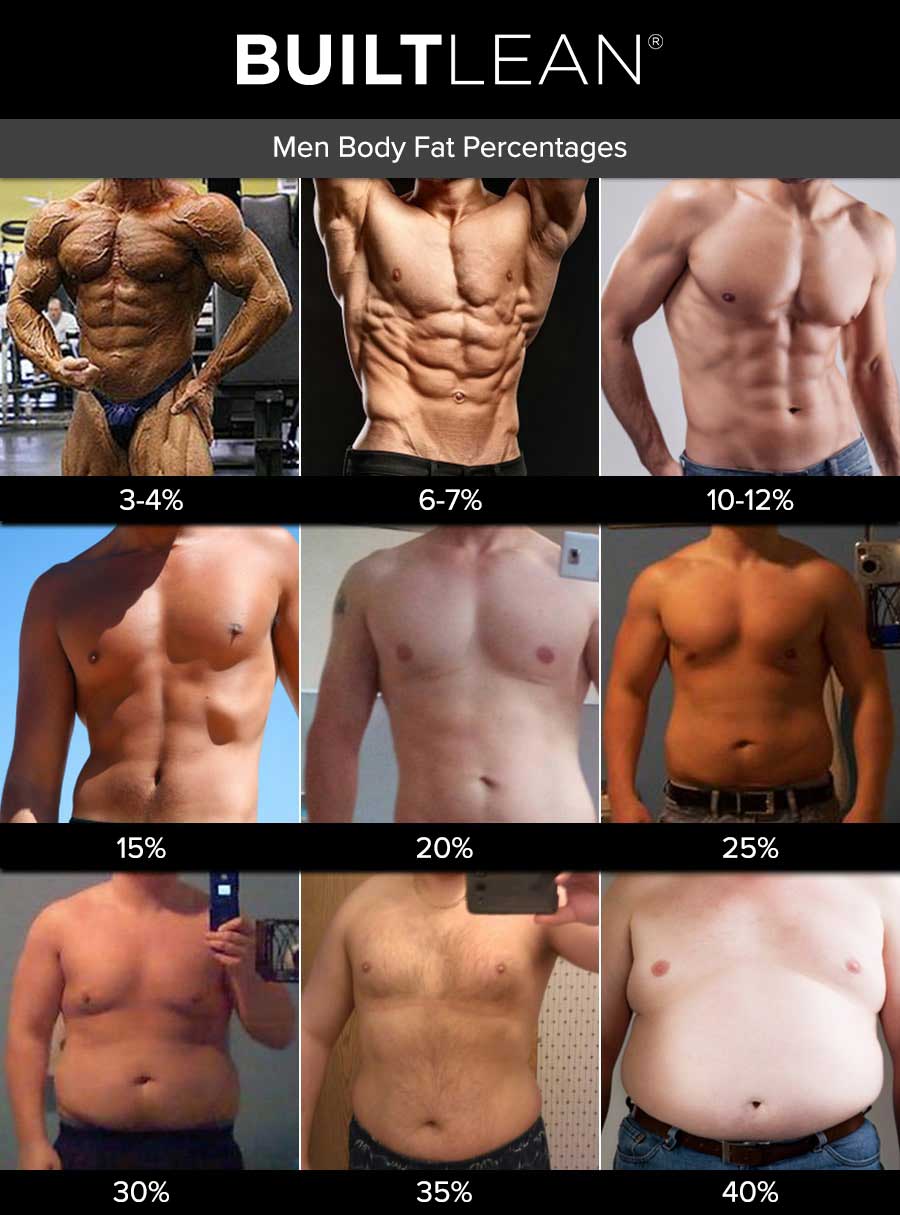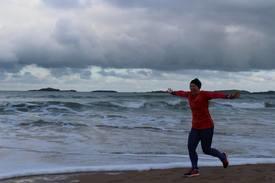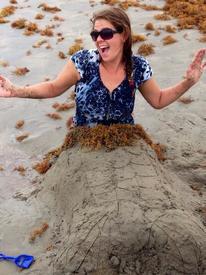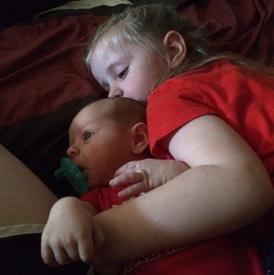Body Fat Scales Warning

shmoony
Posts: 237 Member
I had a Weight Watchers scale for about a year which consistantly gave me a BF% of 16% which I always knew was too high based on other sources I have used over the year. I then just started using the Fitbit Aria which gives me a BF% of 5.6%. Based on my general knowledge of what someone looks like at a certain BF%, I would guess myself at more like 9%. So my question is, how can these sclaes be sooo wrong, and how can they get away with giving vastly inaccurate numbers that people count on to track their progress. The thing that sucks is that most of the advice poeple receive is to not worry about weight and more about body composition. If they are using a BF% scale to track this, they might be chasing the wind.
0
Replies
-
Because body fat is incredibely hard to measure accurately?0
-
They are useful for tracking trends, given the same measuring conditions every time.
If you use the same ruler for every job, it doesn't matter as much if the inches are wrong.0 -
Because they are not able or supposed to be very accurate. If you are using the scales where you stand on the scales and hold a bar with your hands then obviously that it's going to give an accurate estimate of BF%. The idea is to use them as a guide to whether you are going up or down in your BF%.
If you are counting on them to track your exact body fat than that is your problem because you should know that you aren't going to get something so scientifically accurate for $200 -
They can be handy for tracking progress. It's pretty well documented that the number they give you is next to worthless, but if the number changes, then that usually reflects an actual change in body composition (assuming that you always use it with your body in the same state as far as hydration, time of day, etc).
For example, my body fat according to calipers is down to 22%, from 29%, which judging from pictures is pretty accurate for me. My body fat scale has gone from 37% to 30%. So it's about 8% high, but it's consistently 8% high.0 -
I would say 16% is MORE accurate. To be at 9% body fat as a woman is insane. I'm talking body builder material0
-
I rely mostly on the BF % taken by my trainer, but I know a lot of folks don't have that option. I also have a FitBit scale. I don't know how accurate it is (I unfortunately can't remember my BF % my trainer took) but I do know that it's gone down from two weeks ago (from 38% to 35%... I'm a work in progress:embarassed: )
I mainly look at the change in BF on the scales. If it goes down--I know I'm on the right track!0 -
The best (cheap, easy, at home) way is using calipers. The "best" way is a DEXA scan and even that still has a ~ +/- 2% range. Visual inspection works too. Here's a good example:

And a decent article (picture source) which explains it.
http://www.builtlean.com/2012/09/24/body-fat-percentage-men-women/0 -
As melanie cheeks states, BF% *is* incredibly difficult to measure accurately.
I have the Aria, and I don't really worry too much about the BF% number it reports. I know it can't possibly be accurate - but that said, i would expect it to be a good indicator of my BF% *trend* - that and other external indicators let you know if you're moving in the right direction. 0
0 -
I would say 16% is MORE accurate. To be at 9% body fat as a woman is insane. I'm talking body builder material
She's a he so 9% isn't unreasonable.0 -
I would say 16% is MORE accurate. To be at 9% body fat as a woman is insane. I'm talking body builder material
I am a man. And based on the pictures above, I am at about 9%-10%. Halfway between the two scales. Interesting.0 -

 0
0 -
WOOPS!!! LOL... sorry!!:blushing:0
-
I have an eat smart scale that measures body fat... and based on my BMI and measurements, I can conclude it's somewhat accurate (but that is just an assumption based on measurements taken elsewhere)... BUT I'm not worried about the actual number as I am the trend of that number.0
-
I use caliper and visual inspection. The Trend of the number (excellent verbage k8) is the most important, however I have a close to specific number that is my goal, just out of curiosity to see what happens to my c section belly...0
-
I guess one other concern I have for people with eating disorder tendancies is that if their scale keeps telling them that their BF% is higher than it really is, it may reenforce the need to lose weight while they are able to justify it by the number given t them. If someone tells them to stop losing weight, they can always say," well I'm still at 18% body fat, so I'm not unhealthy". Just a thought.0
-
The only truly accurate ways to measure bodyfat is a displacement method - either air (aka bodpod) or water - if you have a university near you with an Exercise Science department you can probably get this done for $50-100, depending on where you live (the university near me charged $50 the last time I had it done)...or a DEXA scan (Dual Energy X-ray Absorptiometry) - which is difficult to find and pretty expensive (like $250+).
The second most accurate method is skinfold testing, with the skin fold measurements being taken by someone who has been trained on how to use the calipers (and preferably to have the same person take the measurements each time). This is probably the most accurate method for the majority of people, because any personal trainer worth their salt at a local gym *should* know how to do skinfold testing.
Bioelectric Impedance methods (BF scales or those handheld devices) are basically the least accurate (outside of the US Navy calc using waist/neck/height for men and hips/neck/height for women). The results can vary significantly, depending on how hydrated you are...and can be off by anywhere from 5-10%! These methods are best used for tracking BF trends, as opposed to actual BF %, provided that you are measuring using the same hydration levels each time (ie you'll know that your BF is decreasing over time, but you won't know your *actual* BF %). Not to mention the fact that BI methods are known to be completely inaccurate for people with very low BF.
HTH! 0
0 -
I'm drooling over Mr 10-12% :happy:0
-
It is also pretty well established that these scales also confuse water for fat. As for people who tend to have eating disorder tendencies...they tend to have them regardless of what a scale says anyways; the scale could say they're 85 Lbs and 5% BF and all they would see in a mirror is a fat person.
Personally, I just use the mirror and a decent set of calipers to give me a reasonable estimate...I don't need an exact number. I can see whether my body composition is improving or not.0 -
In the instructions with these scales they usually recommend spraying a bit of water on the scale or having damp feet to measure more accurately.0
This discussion has been closed.
Categories
- All Categories
- 1.4M Health, Wellness and Goals
- 398.1K Introduce Yourself
- 44.7K Getting Started
- 261K Health and Weight Loss
- 176.4K Food and Nutrition
- 47.7K Recipes
- 233K Fitness and Exercise
- 462 Sleep, Mindfulness and Overall Wellness
- 6.5K Goal: Maintaining Weight
- 8.7K Goal: Gaining Weight and Body Building
- 153.5K Motivation and Support
- 8.4K Challenges
- 1.4K Debate Club
- 96.5K Chit-Chat
- 2.6K Fun and Games
- 4.8K MyFitnessPal Information
- 12 News and Announcements
- 21 MyFitnessPal Academy
- 1.5K Feature Suggestions and Ideas
- 3.2K MyFitnessPal Tech Support Questions













